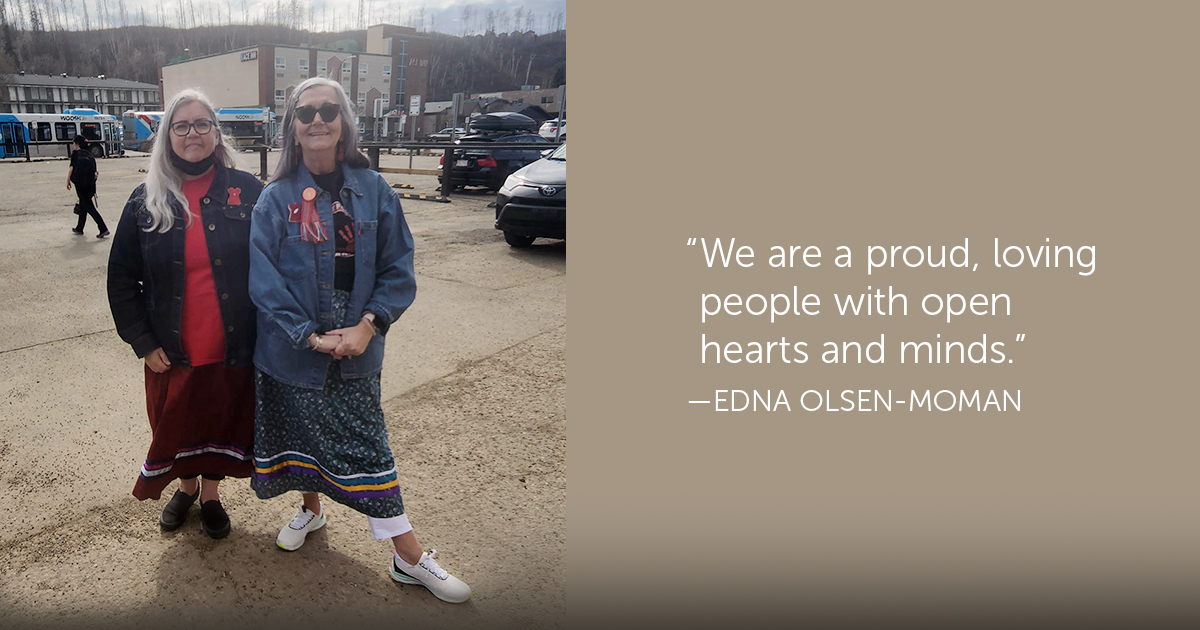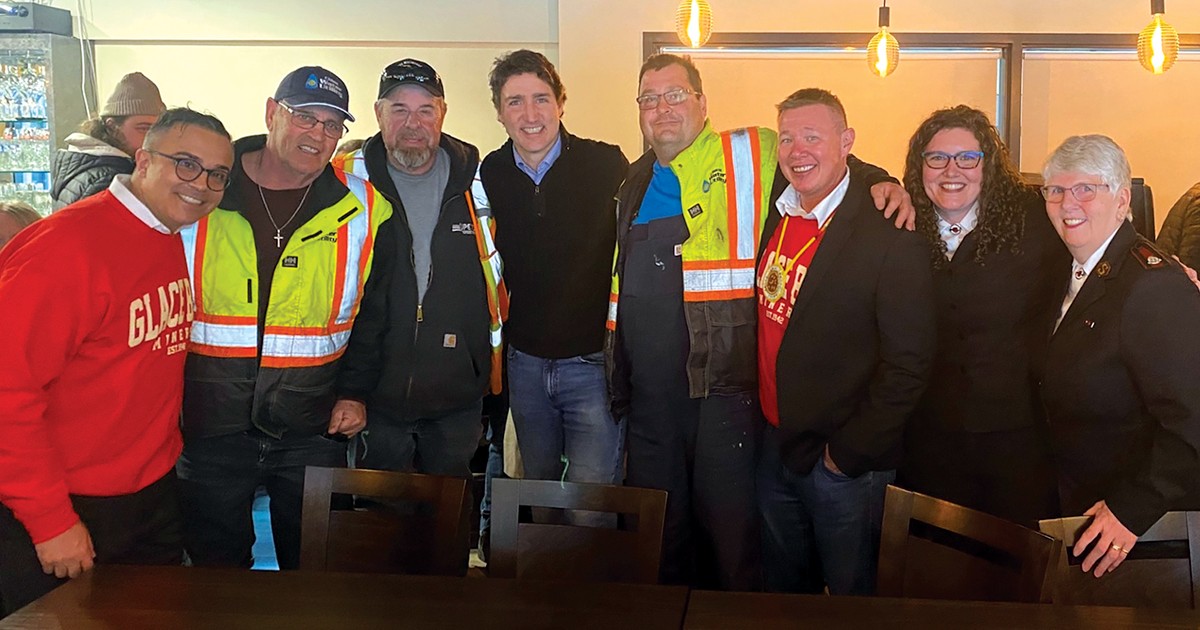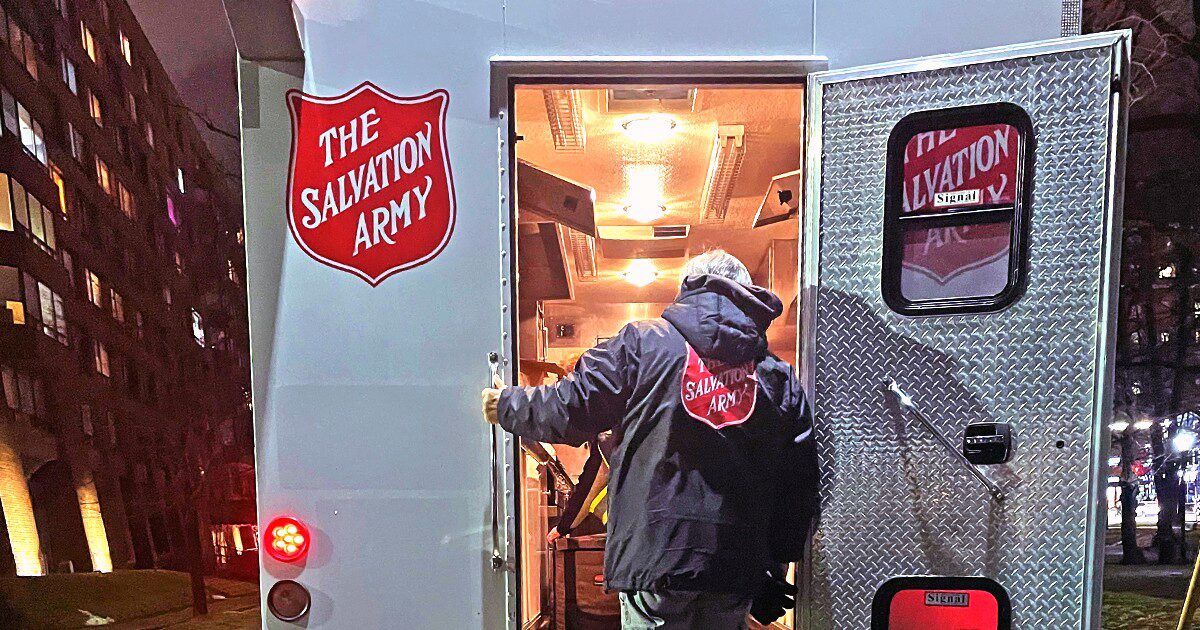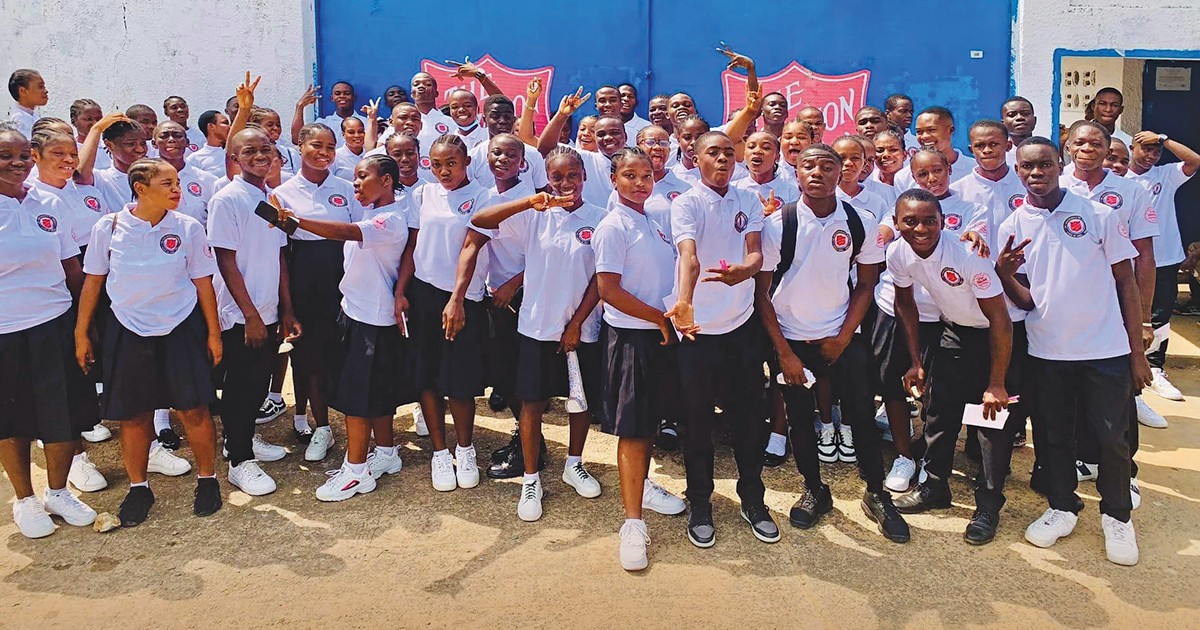(Above) Kate Penney and Edna Olsen-Moman attend a march to raise awareness for murdered and missing Indigenous women
June is National Indigenous History Month, a time to honour the history, heritage and diversity of Indigenous peoples in Canada and recognize the strength and resilience of these communities.
“We are a proud, loving people with open hearts and minds,” says Edna Olsen-Moman, executive director at The Salvation Army in Fort McMurray, Alta. Edna, a Cree Métis woman, is the first Indigenous female, who identifies as Cree, to hold the role. Her credibility and trust within Indigenous communities has opened doors for The Salvation Army to walk alongside and gain knowledge of the relevant needs of individuals and families residing in the rural region of Fort McMurray.
“The Salvation Army continues to reach out to Indigenous elders and leaders,” says Kate Penney, programs manager. “As a result, we have received input from elders and community leaders to identify community needs and barriers to service.”
The Salvation Army in Canada and Bermuda has committed to a journey of reconciliation with Indigenous peoples. As an organization that believes in equality for all and whose mission is to remove barriers wherever possible, the Army developed the Fort McMurray Rural Community Program.
“The Fort McMurray ministry unit and Rural Community Program is flourishing in the rural areas of our municipality, particularly within the Métis community of Conklin, Alta. With funding from Agriculture Canada, we have been able to become visible and helpful to families who are struggling,” says Edna.
“It is important to be involved in the needs of our rural communities.”
The Rural Community Program has provided:
- shipments of food and food gift cards
- funds for emergency food cupboards
- 575 students with backpacks, hoodies, snack bags, socks, water bottles and other school supplies
- hand sanitizer for school classrooms and offices
- 20 pairs of runners for children who presented at school without adequate footwear
- single parents with costs related to food insecurity, clothing, utility, rent arears and infant needs
“One leader called me and said that he was so appreciative that we were in his community,” says Edna. “He then commented that he could not believe that at -30 C, he drove by the civic centre and saw The Salvation Army food truck and staff sitting outside (due to COVID-19), helping families in need. He was emotional and said that Conklin was a forgotten place but had not been forgotten by The Salvation Army.”
“It is important to be involved in the needs of our rural communities,” says Kate. “The assistance people are asking for is extremely basic. Even propane for a trailer. Once essentials are in place people can put their energies toward other things like better housing.”
To learn more about The Salvation Army's Indigenous ministries, click here.










Leave a Comment